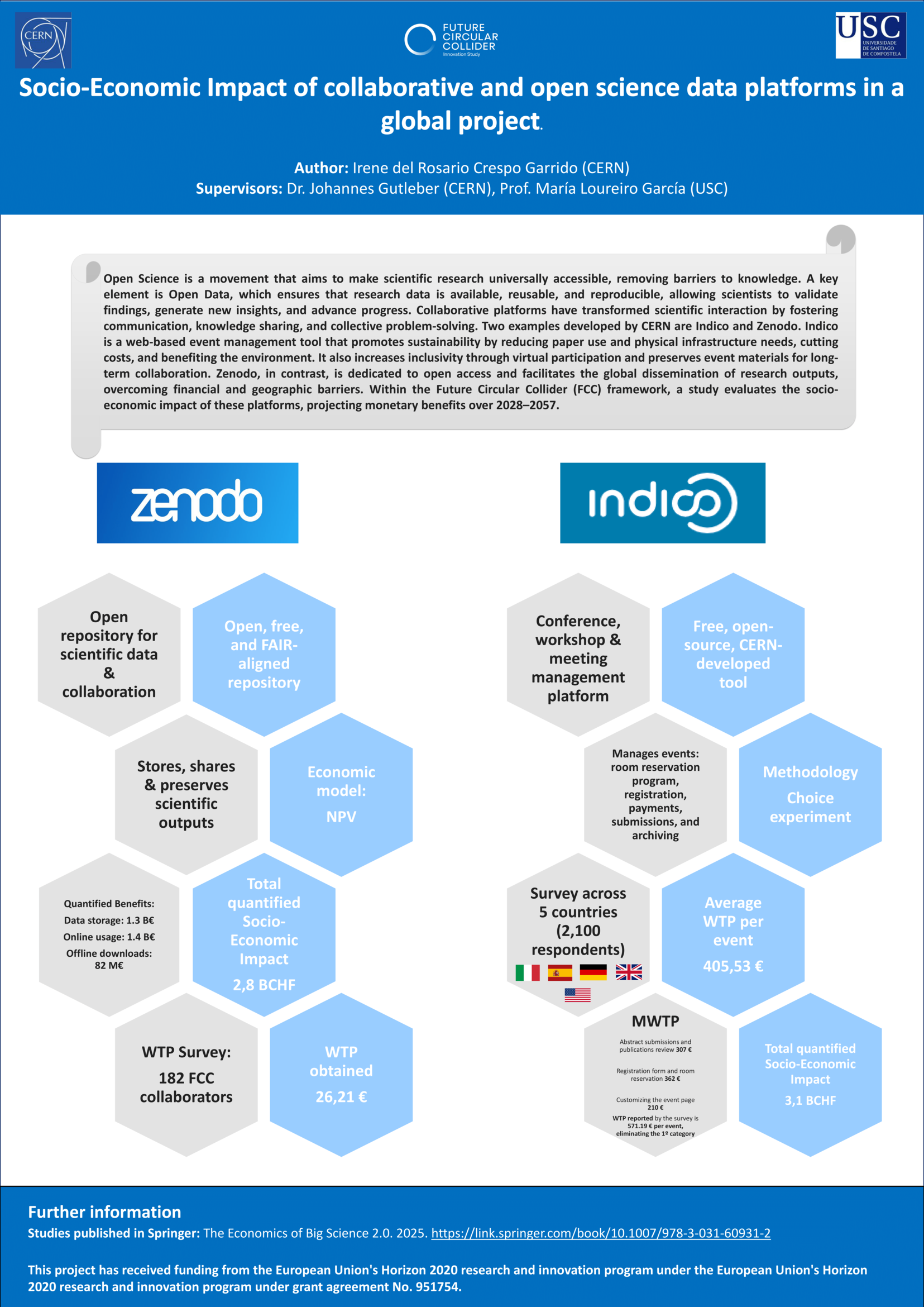
Socio-Economic Impact of collaborative and open science data platforms in a global project.
-
- Irene Del Rosario Crespo Garrido, CERN, https://home.cern/, Switzerland
Open Science is a movement dedicated to making all scientific research publicly accessible, free from barriers or restrictions. Open Data refers to the practice of sharing research data in a way that ensures it is accessible, reusable, and reproducible by anyone. By embracing these principles, scientists can validate results, conduct new research, and foster scientific progress. The rise of collaborative platforms has revolutionized how individuals and organizations interact, enhancing communication, knowledge sharing, and collective problem-solving. Two platforms that illustrate this transformation are Indico, an event management web platform, and Zenodo, a platform designed to facilitate the sharing of information. Both are developed and maintained by CERN.
Indico promotes sustainability by eliminating paper-based processes and reducing the need for physical infrastructure, leading to both cost savings and environmental benefits. It enhances accessibility by offering virtual event options, enabling broader participation and inclusivity. Additionally, Indico serves as a long-term repository for event materials such as presentations and articles, supporting interdisciplinary collaboration and advancing research.
Zenodo, on the other hand, provides features that support knowledge advancement and collaboration within the research community. By championing open access, Zenodo enables the global dissemination of research findings, overcoming barriers such as geographic and financial constraints.
But what is the real Socio-Economic Impact of these platforms? This study, conducted within the framework of the Future Circular Collider (FCC) at CERN, provides a quantitative estimate of the socio-economic impact generated by these platforms in monetary terms over 29 years (2028-2057).